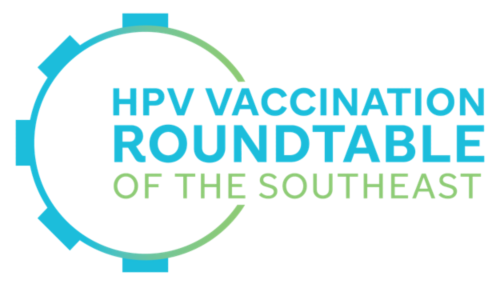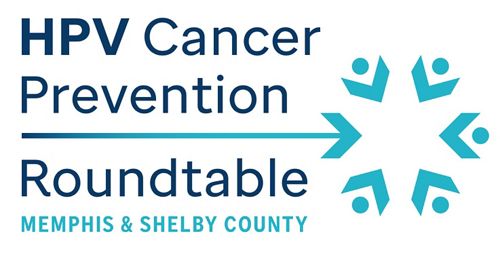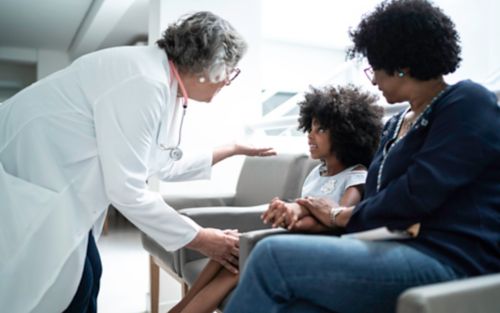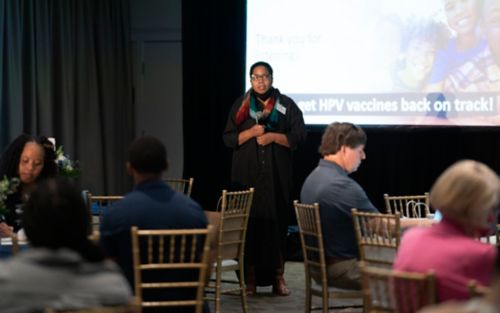St. Jude Family of Websites
Explore our cutting edge research, world-class patient care, career opportunities and more.
St. Jude Children's Research Hospital Home

- Fundraising
St. Jude Family of Websites
Explore our cutting edge research, world-class patient care, career opportunities and more.
St. Jude Children's Research Hospital Home

- Fundraising
HPV Vaccination is
Cancer Prevention
Our activities focus on galvanizing existing successful efforts
and introducing new ones in support of increasing HPV vaccination through:



In the News
Healthcare providers can play a big role in helping people in rural communities recognize the importance of HPV vaccination. Heather Brandt, PhD, director of the HPV Cancer Prevention Program, discusses a recent panel discussion with rural residents about their attitudes and concerns about vaccinating.
In the news
September is Gynecologic Cancer Awareness Month, and Karla Chavez, a cervical cancer survivor, answered our questions about her cancer journey.
In the News
Wide Open Spaces: Supporting HPV Vaccination in Rural Communities: Caryn Peterson, PhD, of the University of Illinois Chicago discusses the importance increasing the uptake of the HPV vaccine in rural areas where the instances of cancers related to HPV are high and the rate of vaccination is low.
In the news
Reducing HPV Cancer Stigma with PRIDE: Calvin Nokes shares his cancer survival story. Learn more.
In the news
Partnering with universities may be a way to increase HPV vaccination among young people, says Min Jee Lee, PhD, of Southern Illinois University. She shares her ideas here.
About the St. Jude HPV Cancer Prevention Program
Human papillomavirus (HPV) is a very common virus in both men and women that causes six types of cancer. Nearly all men and women get the virus at some point in their lives. There is good news. A safe and effective vaccine that provides long-lasting protection against HPV cancers is available.
HPV vaccination is recommended for everyone aged 9 to 26 years and for some people aged 27 to 45 years. HPV vaccination is cancer prevention. However, uptake of HPV vaccination in the United States has been slow and lower than the national Healthy People 2030 goal of 80%.

National Programs

Regional Programs
Working to Boost HPV Vaccination Rates in the Southeastern U.S.
The HPV Vaccination Roundtable of the Southeast is a group of people and partners from Alabama, Arkansas, the District of Columbia, Florida, Georgia, Kentucky, Louisiana, Mississippi, North Carolina, South Carolina, Tennessee, Virginia, West Virginia and Puerto Rico working together to change the story about HPV vaccination in their states.

The St. Jude HPV Cancer Prevention Program
What We Do:
Identify opportunities and priorities for increasing HPV vaccination.
Implement and evaluate evidence-based healthcare, community, and policy and advocacy activities to increase HPV vaccination.
Engage partners and strengthens partnerships with local, regional and national groups.
What Can You Do?
Get vaccinated against HPV: If you or your child is in the recommended age range, get vaccinated.
Encourage others to get vaccinated: Normalize HPV vaccination as cancer prevention.
Share the facts: HPV vaccination is safe, effective, and durable. It prevents six types of cancer.
Policy Reports
More Information
Contact Us
HPV Cancer Prevention Program
Mail Stop 762, Room S3005
262 Danny Thomas Place
Memphis, TN 38105-1730
Phone: (901) 595-7615
Fax: (901) 595-1559










